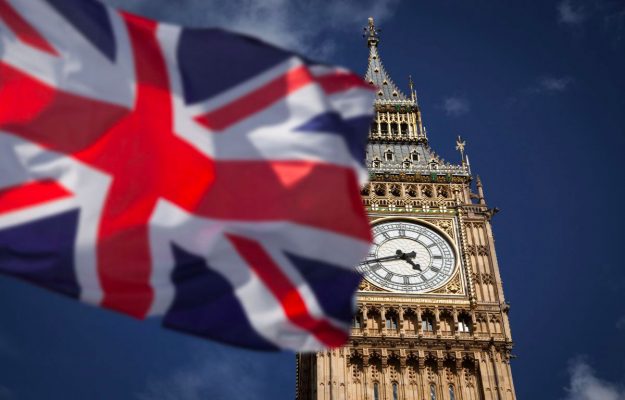Just over six years ago, in 2016, Brexit was voted in and definitely took Great Britain out of the European Union. Now it is on the down slide as regrets are growing rapidly among British citizens. The latest survey, carried out by YouGov, revealed that 62% believe it is a failure, and only 9% a success. Furthermore, only 31% of citizens today believe it was right to have voted to leave the European Union, while 56% think it was the wrong move. Many things have changed over the past few years, but one thing is sure, getting rid of the link with Brussels hasn’t made London’s economy soar, instead, it is finding that it is more and more isolated. Obviously, on the bureaucratic level, the newfound “freedom” has allowed the UK government to move much more autonomously in all economic and productive areas. And, of course, this includes wine, considered in the broadest terms, ranging from production to commercial aspects, at the center of an epoch-making reform proposal, recently presented by the British Department for Environment, Food & Rural Affairs. The intentions of the legislator include that it will give back to the sector freedom to flourish by eliminating European bureaucracy, and thereby freeing up 180 million Sterling pounds of resources. Consultations should be starting very soon to get the views of all the players in the sector as well as to fully understand the scope and timing of the reform.
There are very important measures, especially for importers and bottlers, on the table, which potentially concerns millions of hectoliters of wine imported from all over the world. Of course, this also includes Italy, which in 2022 shipped 2.61 million hectoliters of wine to Great Britain, totaling 811 million euros in value. First of all, the requirement that imported wines must be labeled by an importer rather than by a food business professional, will be removed, thus reducing costs and red tape for consumers. Then, blending imported wines will therefore be allowed, and there is more - in terms of transformation of products in the wine sector, carbonating, sweetening or taking the alcohol out of the wine will be allowed for imported wines. The aim is to strengthen the National industry, which will be allowed to produce new product ranges according to the British market’s needs. It will also remove the mandatory requirement that some sparkling wines must have mushroom caps or aluminum caps, in order to be marketed in the United Kingdom, which will mean lower costs for producers and more choice for consumers.
These are, evidently, measures that regard generic wines, mostly in bulk and imported, at low cost, but still very important. There are also interesting innovations on the production front, and therefore, domestically. First of all, Denomination of Origin wines will be allowed to use a wide range of disease-resistant grape varieties, and this will allow winemakers to choose the variety that works best as well as reducing production loss due to disease. This signifies then that the production and marketing of “Piquettes” (known in Italy as “watercolor wines”, ed.), obtained from the pomace previously used to produce a wine, diluted with water and sugar, will be permitted, guaranteeing a new source of income for the wine producers. Furthermore, they will be allowed to put variety and vintage on the label without having to request authorization. Lastly, production and marketing of low-alcohol or alcohol-free wines will be permitted, giving more flexibility to UK producers, and, again, more choices for consumers.
“The United Kingdom boasts over 800 thriving wineries, and a turnover of hundreds of millions of Sterling pounds from the wine trade that comes through our ports every year. But, our producers have been held back by cumbersome European Union regulations inherited from the past, for too long”, commented Thérèse Coffey, Food & Drink Secretary of the Department for Environment, Food & Rural Affairs. “We will give the industry the freedom it needs to thrive. These reforms will boost the businesses of our winemakers, grow the economy, create jobs and support a vital part of our food and beverage sector”. Kemi Badenoch, Secretary of State for Economic Affairs and Trade, echoed her, saying, “useless bureaucracy stifles innovation and growth. Now that we've regained control of our laws, we can make sure they work in the best interest of our businesses. Reforming and eliminating the rules that burden the industry will help grow the economy, and will provide businesses with those much-needed freedoms to innovate, create and thrive”.
Finally, Miles Beale, head of the Wine & Spirit Trade Association, commented, and welcomed “the range of measures presented, many of which we have proposed publicly. By introducing greater flexibility, wine producers and importers will not be forced to do anything different, but they will be able to innovate. Permitting companies that import bulk wine into Great Britain to be able to manipulate it freely will benefit importers, bottlers and ultimately, consumers. The labeling changes will allow for a common back label to be used on both European Union and United Kingdom markets, which would thus remain an attractive market for all producers - large and small - around the world”.
Copyright © 2000/2026
Contatti: info@winenews.it
Seguici anche su Twitter: @WineNewsIt
Seguici anche su Facebook: @winenewsit
Questo articolo è tratto dall'archivio di WineNews - Tutti i diritti riservati - Copyright © 2000/2026







































































































































































































